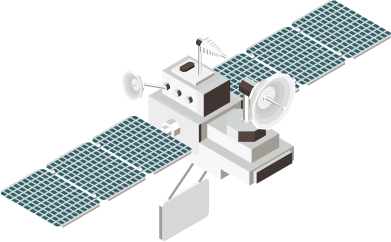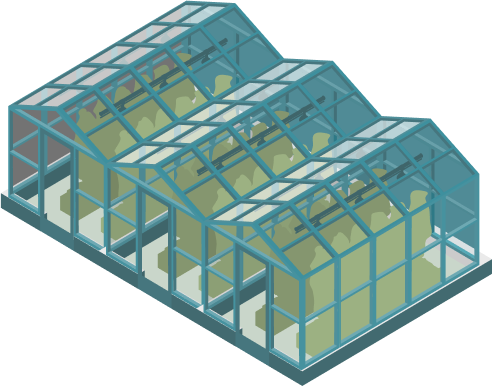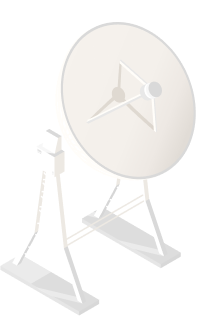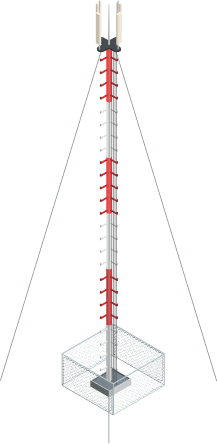
GNZ

GNZ
Several Max Planck Institutes in the Berlin/Brandenburg area are networked via a powerful intranet, at the center of which is the “Gemeinsames Netzwerkzentrum” (GNZ) – a Joint Network Centre.
Show moreMPCDF

MPCDF
The Max Planck Computing and Data Facility (MPCDF, formerly known as RZG) is a cross-institutional competence center of the Max Planck Society to support computational and data sciences.
Show moreMPI

MPI
Your Max Planck Institutes are in the heart of our city! You all are independent and autonomous in the selection and conduct of your research pursuits.
Show moreDKRZ

DKRZ
The German Climate Computing Center (Deutsches Klimarechenzentrum, DKRZ) is a non-profit and non-commercial limited company, operating a supercomputer center to enable climate simulation.
Show moreMP-GC

MP-GC
The Max Planck-Genome-Centre Cologne (MP-GC) is a core facility for Max Planck Institutes performing next-generation sequencing (NGS).
Show moreHLL

HLL
The “Halbleiterlabor” (HLL) of the Max Planck Society is a Semiconductor Laboratory and develops, processes, and supplies commercially unavailable state-of-the-art semiconductor radiation detectors for advanced experiments with a focus on high energy and astrophysics research.
Show moreMP Foundation

MP Foundation
The Max Planck Foundation (Förderstiftung) is the independent, non-profit organization of private supporters of top research in the Max Planck Society.
Show morePresident & Executive Committee

President & Executive Committee
As a statutory body of the MPG, the President has a special status. They represent the MPG in Germany and abroad, as well as providing for a fundamental science-policy.
Show moreBAR

BAR
The MPG internal committee “BAR” (Beratender Ausschuss für Rechenanlagen / Advisory Committee for Computing Facilities) was founded by a decision of the MPG Executive Committee in 1968.
Show morePostdocNet

PostdocNet
The Max Planck PostdocNet, founded in April 2019, brings together postdoctoral researchers of the Max Planck Society and represents the interests of the postdoctoral community across all Max Planck Institutes.
Show moreMPDL

MPDL
The Max Planck Digital Library (MPDL) is a central unit of the Max Planck Society. It supports scientists from all Max Planck Institutes with a broad portfolio of services in the fields of information and software supply, publication services, and research data management.
Show moreMPDL Services

MPDL Services
MPDL Services gGmbH (MPDLS) strengthens science and research in Germany by ensuring access to open access publishing services and scientific literature.
Show moreConference Venues

Conference Venues
The Max Planck Society has several conference venues to accommodate symposia, conferences and conventions.
Show moreMPQueer

MPQueer
MPQueer, the queer network of the Max Planck Society, strives to accelerate the formation of a supportive and progressive queer community in the MPG.
Show moreSustainability Network

Sustainability Network
The Max Planck Sustainability Network is a grass-roots initiative within the Max Planck Society. It was founded in 2019 in Magdeburg during the first sustainability workshop.
Show moreFoKo & IMPRS

FoKo & IMPRS
Today, science and science management work closely together. Professional management creates the freedom that research needs on a daily basis. IMPRS stands for International Max Planck Research Schools.
Show moreBrussels Office

Brussels Office
The Brussels Office of the Max Planck Society has the task of monitoring, analyzing, and evaluating research policy developments at the EU and helping shape them in the interests of the Max Planck Society and its Institutes.
Show moreScientific Council

Scientific Council
The Scientific Council is made up of the Scientific Members and the Directors of the institutes and research facilities.
Show moreBerlin Office

Berlin Office
The Max Planck Society has maintained an office in Berlin since 2003. The office is located at the WissenschaftsForum at Gendarmenmarkt.
Show morePhDnet

PhDnet
The Max Planck PhDnet is a platform for exchange among the about 5000 PhD candidates working at 84 Max Planck Institutes of the MPG across all three sections: Biology & Medicine (BMS), Chemistry, Physics & Technology (CPT), and Human Sciences (HS).
Show moreLeadNet & MPRGL

LeadNet & MPRGL
LeadNet is a network bringing together senior scientists, research associates, project and group leaders of the Max Planck Society. The MPRGL network is a forum for independent Max Planck Research Group Leaders within the Max Planck Society to connect with each other.
Show moreSecretary General & Administrative HQ

Secretary General & Administrative HQ
The Secretary General is responsible for managing Administrative Headquarters and bears responsibility for budgetary matters and daily business. Administrative Headquarters manages the day-to-day operation of the MPG. It is based at the Max Planck House in Munich’s Hofgarten.
Show moreScientific Members

Scientific Members
The Scientific Members include the Scientific Members of the Institutes (usually the directors), the retired Scientific Members, and the External Scientific Members of the Institutes.
Show moreArchive

Archive
The Max Planck Society’s Archives in Berlin-Dahlem were established in 1975 in order to safeguard the files of the Kaiser Wilhelm / Max Planck Societies for the Advancement of Science (mainly files, photographs, audio records, and film) in one central place and to make them accessible to users (currently more than 4,000 meters of shelf space).
Show moreGWDG

GWDG
The GWDG is a service organization that works in conjunction with the University of Göttingen and the Max Planck Society as a data and IT service center.
Show moreGeneral Meeting

General Meeting
The General Meeting of the members of the Max Planck Society is the principle governing body of the Society.
Show moreInnovation

Innovation
As the central technology transfer company of the Max Planck Society, Max Planck Innovation has helped bridge the gap between science and industry since 1970.
Show moreOpen Science Ambassadors

Open Science Ambassadors
Open Science Ambassadors are early-career-researchers of the Max Planck Society interested in open science topics and their systematic implementation.
Show moreScientific Staff

Scientific Staff
The representative of the scientific staff is elected every three years by the scientific staff of the respective institute and confirmed by the President of the Max Planck Society.
Show more






























